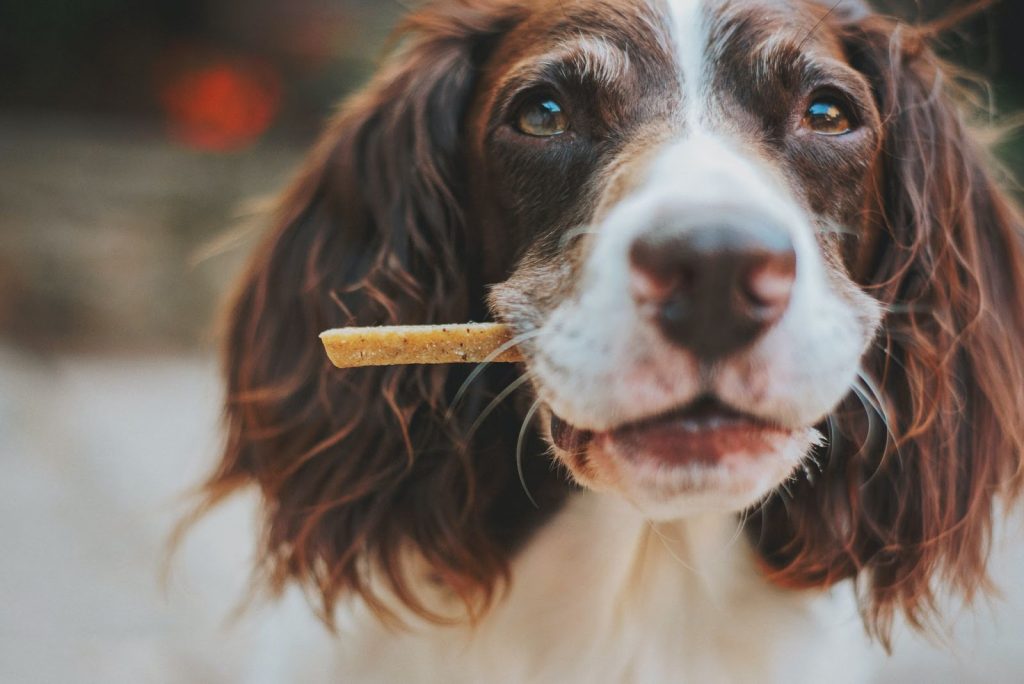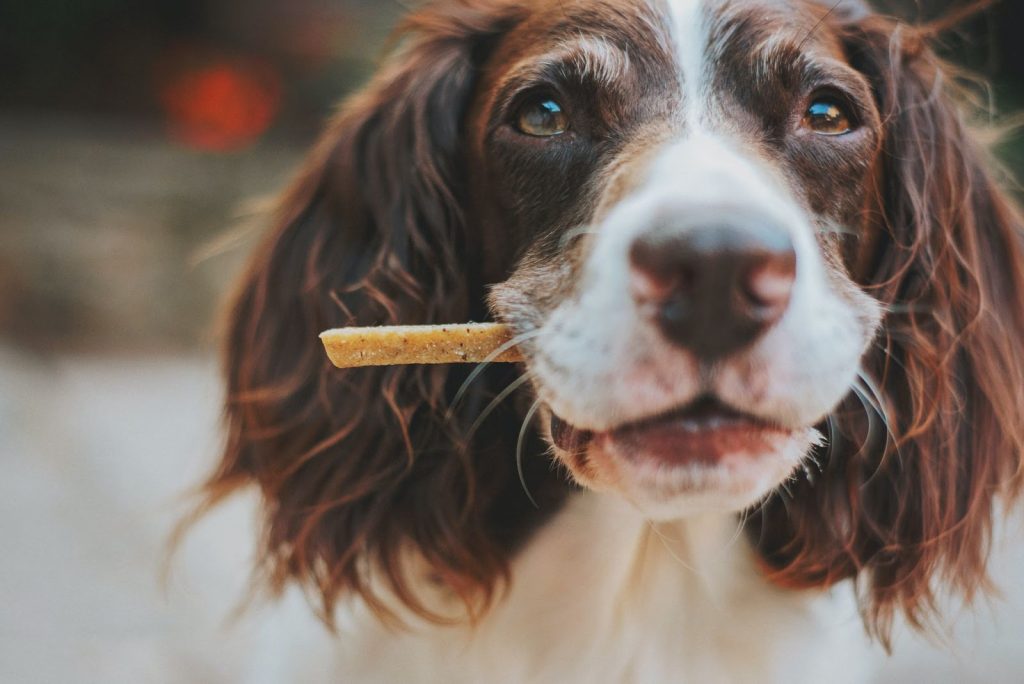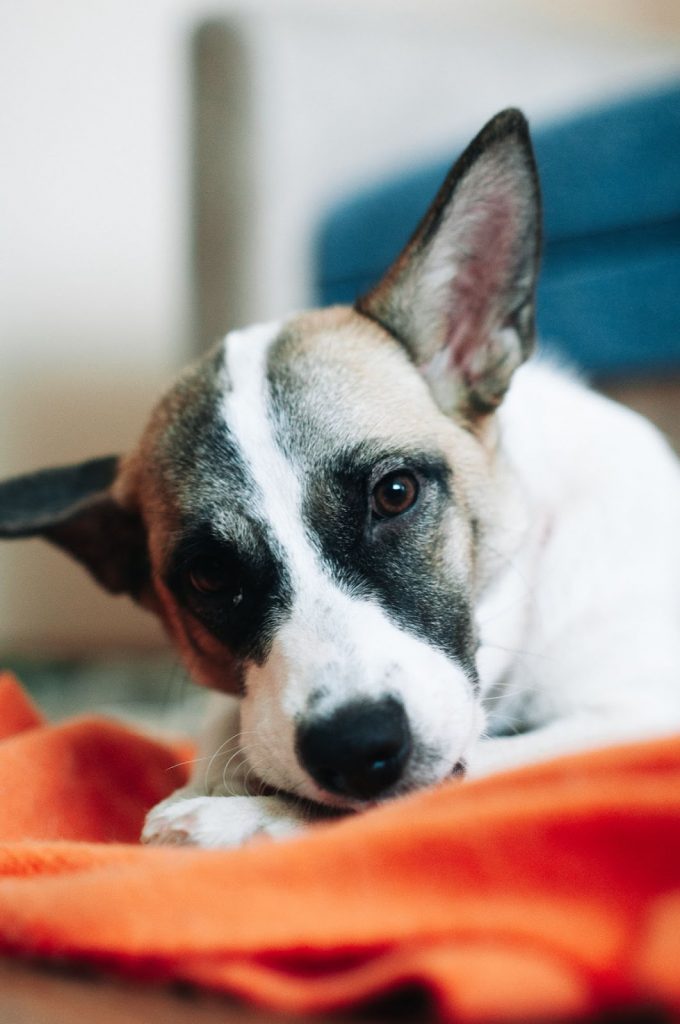Why Are Dogs Always Hungry? 3 Tips on How to Stop Dog From Begging for Food
So you’ve been feeding your dog on time without skipping, yet they seem to be wanting for more. You might give in two or three times but as you get manipulated by their pity stares and constant barking. You’ll realize that you might be tolerating behavior that would lead to weight gain or the worst part obesity. Yet, there’s still a chance that you’ve been feeding them less or there’s a hidden reason why dogs are always hungry such as disease or abnormal eating behavior.
The reason why dogs are always hungry varies from each breed’s personality, behavior, roots, and human family. One theory about this behavior comes from their closest relative, the wolves, they do not have regular meals like domesticated dogs now. They feed themselves through hunting prey and eating as much as they can before they could hunt the next one. Feast of the Famine is a behavior between wolves that might be passed on to domesticated dogs. Thus, dogs will always ask for food because they have learned from wolves to always hunt prey. After all, it is not always available.
Another reason why dogs seem to be hungry all the time is the way their human family reacts to their whines and crying eyes. A pet owner may not realize that they are creating a mindset for dogs to always think that it’s okay to eat all the time because of owners giving food whenever they eat. Besides, dogs are great manipulators that will communicate through barking and body language so that owners will give in and give them food.


Table of Contents
What to Do With Hungry Dogs?
Identify the root cause of this behavior and plan the next step so that this behavior will be corrected.
1. Consult a Veterinarian
For you to be informed of the right diet, schedule, and nutrition requirements of your pet, consult a veterinarian and allow them to assess your dog’s condition. Listen to their advice so that your dog will achieve a healthy weight. Tell your vet the dog’s tendency to ask for more food and whenever left with food for the next meal they ate it all right away. Aside from the proper diet, your vet will give you suggestions on how to stop your dog’s eating behavior.
2. Scheduled Meals
After you ask your vet for the amount of dog food and treats to give to your dog. Schedule a meal time wherein your dog can take it into practice. After they have finished eating, take away the food bowl so that they’ll know that there’s no more food. In that case, they will not have a chance to get back to the food and eat the leftovers.
3. Strict Diet
Inform your family members that your dog is on a strict diet and should not be given any food unless it’s mealtime. You can now establish an idea to your dog that they will just be fed up to 3 times a day. They can focus more on playing rather than demanding food. As a pet owner, you must be strict in implementing the diet so that dogs will learn and not be spoiled.
4. Reward Treats
Only give treats when your dog has done a remarkable thing or accomplished training. In this way, they will be motivated to obey you so that they can have a treat. Don’t give them treats for no reason. If you want to give them a snack, allow them to do some tricks first before you give them a treat.
5. Slow Feeder
Dogs often feel like they have eaten less because they ate fast and finished the food right away. To give a solution to the fast and feels like there’s no tomorrow kind of eating, buy your dog a slow feeder wherein they will have difficulty getting all the dog food thus the eating will be much slower.
6. Solve Psychological Issues
Oftentimes, the reason why your dog is always hungry is because of psychological issues. Your dog might be experiencing some changes in your environment that’s why he acted out on eating and demand for food. When the changes are obvious like a new dog or a new member in the house. Instead of giving in to their demands on food, you can guide them on the process and give them lots of attention.
Increase in Appetite Caused by Health Issues
Your dog might be experiencing problems with its physical body that’s why there’s an increase in appetite. If you have been training them for scheduled meals but still there’s no change in the behavior. Try looking out for health issues that will lead to them always hungry.
Some of the health issues resulting in to increase in appetite are:
1. Hyperthyroidism
Too many thyroid hormones will be produced on a dog’s body with this condition. The thyroid is a hormone that is responsible for boosting a body’s metabolism. And when they have too much thyroid that is the time that hyperthyroidism occurs. Your dog will experience extreme hunger, diarrhea, weight loss, and restlessness.
When you notice the symptoms, you should go to your vet and ask for proper medication. Although, it seldom happens to dogs if your dog is hungry all the time and not gaining weight, then take the necessary action for your pooch’s health.


2. Diabetes
Canine Diabetes can affect a dog’s body greatly. They will be incapable of producing insulin that helps transport glucose from the bloodstream to the cells. When this happens, the glucose sticks up in the blood and the body will not detect the glucose because it did not go all the way to the cell. Consequently, the canine’s body will be in starvation mode causing weight loss, increase in appetite, and frequent urination.
There are two types of diabetes, type 1 which is inborn and the canine’s body is not producing insulin and the other one is type 2 which happens because of the poor choice of food and lack of exercise. Type 1 diabetes cannot be cured because this will be dependent on injected insulin but the Type 2 diabetes can be reversed by eating healthy and doing some exercise.
It’s important that your dog has increased in appetite but they are losing weight. There’s a bigger chance that they might be suffering from diabetes and you have to go to your doctor immediately.
3. Exocrine Pancreatic Insufficiency
EPI or Exocrine Pancreatic Insufficiency is a type of disease that lacks the necessary digestive enzymes on a dog’s body. The body can’t break down the starches, fats, and proteins if they have EPI. That will only mean that the nutrients needed by the body are not extracted from food. The pancreas is not producing enough digestive enzymes that are why your dog will feel symptoms like appetite increase, weight loss, diarrhea, and dryness of coat.
To cure this disease, you have to add pancreatic enzyme powder to a dog’s food. Aside from that, you can also add raw pancreatic enzymes to help your dog digest the food and extract the nutrients. Furthermore, a vet’s approval and consultation are needed so that you will not risk your dog’s condition.


4. Cushing’s Disease
With this type of disease, your pet dog is producing too many hormones called glucocortocoid. It came from the adrenal glands of dogs and it is responsible for helping dogs cope up with stress or make dogs feel better. The downside here is that if the adrenal glands produce too much glucorcoid, it will create a hormonal imbalance. Hormonal Imbalance then produces an increase in appetite, hair loss, and increased urination.
Surgery will be needed to cure Cushing’s disease if the tumor is on the adrenal gland. However, if the tumor is on the pituitary gland, there will be a lifetime of medication needed so that the glucocortocoid hormones are controlled.
5. Bacterial Growth on Intestines
The disease is all about bacteria’s overgrowing on the intestines of the dog’s body. Furthermore, the bacteria damage the intestines and will result in poor absorption of nutrients. Instead of benefiting from the dog food nutrients, the bacterias will use it and live through it. Symptoms would be increased appetite, abnormal bowel movement, and weight loss.
7. Aging
Older dogs will experience either increased or decreased appetite because of their age. They are most prone to diseases and when in pain they will be in stress-causing behaviors to occur. Physical, Emotional, and Psychological issues will be experienced by the dog and one way to comfort them is through food.


3 Tips on How to Stop Dog From Begging for Food
There will be time’s that a pet owner will munch on food while the dog is around. Obviously, they will be attracted to the food because of the smell and it looks yummy when you eat it. So how can you deal with this type of situation and how to train them without looking bad.
1. Ignore Your Dog
It will be hard especially if the dog is used to you giving him food while you eat. However, you can only surpass this situation if you ignore them. Don’t look at their eyes or tease them because for sure you’ll give in to those cute bulging eyes and facial expressions. Just stick to ignoring them and think that they are not starving but just acting out of curiosity and envy on food.
2. Keep Them Out of Dinner Table
One of the best ways to keep them from begging for food is to keep them out from the table. In this way, they will not be envious of the food and you can prevent the constant pawing and barking in while you eat. You can put them in another room or put a cage on the kitchen door to prevent them from going in. Aside from that, incorporate a training wherein you will allow them to sit on a spot and if they stay during the whole duration of the meal, you can give them a treat as a reward.
The training will take time but if you do this right you’ll have a well-behaved dog around the kitchen.
3. Provide Distraction
To stop them from begging for food while you eat, you can distract them through other activities. Throw them their favorite ball or stuffed toy, so that their focus will be diverted and not on food. Instead of keeping them inside, you can also allow them in your backyard and have fun running and exploring while you eat inside.


Signs You Are Underfeeding Your Dog
Worried that you are underfeeding your dog that’s why they are always asking for food? You can check out these signs so that you will be informed that your dog is underfed.
Malnutrition
Lack of nutrients and proper food is the cause of malnutrition. Although not everyone intentionally does this but underfeeding a dog can be a huge cause of it.
Visible signs your dog is malnourished:
- Low Energy
- Always Tired Without Prior Activities Causing Tiredness.
- Dry Skin
- Dandruff
- Bones are Visible
- Extreme odor on Feces and Gas.
How Often Should I Feed My Dog?
Here are some basic guidelines on how often a dog should be fed.
- Puppies should be fed 3 small meals a day.
- Small to Adult dogs should be fed 2 meals a day.
- Medium to Large Adults can be fed two well-portioned meals. The food should be balanced with proteins, 10% carbs with vitamins from vegetables and fruits.
- Senior Dogs can also be fed once or twice well-portioned meals depending on the required diet because of their health.


Dog’s way of life depends on the comfort and access an owner is giving them. With regards to food, if the owner allows access to food in a bowl then most likely a dog will eat and eventually learn that it’s okay to feed for more because of the freedom they’ve got. But because dogs are like a child that wants to eat everything they set their eyes on, they will always beg for more until you do something about it and control their eating habits.
